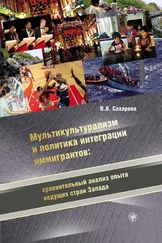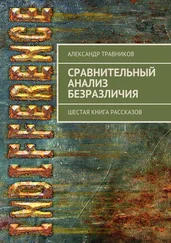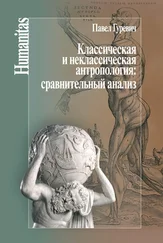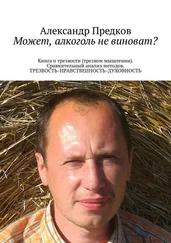Charles F. Andrain, Political Change in the Third World (Boston: Unwin Hyman, 1988), 100–113; James Elliott, «The Future of Socialism; Vietnam, the Way Ahead?» Third World Quarterly 13, no. 1 (1992): 131–42; Gareth Porter, «The Politics of 'Renovation' in Vietnam», Problems of Communism 39 (May–June 1990): 72—88; Douglas Pike, «Change and Continuity in Vietnam», Current History 89 (March 1990): 117—20, 132–34; Douglas Pike, «Vietnam in 1991: The Turning Point», Asian Survey 32 (January 1992): 74—80; Dorothy R. Avery, «Vietnam in 1992: Win Some, Lose Some», Asian Survey 33 (January 1993): 67—74; Ronald J. Cima, «Peasants and Regime in Vietnam: Perspectives on Transition», Problems of Communism 39 (November December 1990): 90—95; Per Ronnas and Orjan Sjoberg, «Economic Reform in Vietnam: Dismantling the Centrally Planned Economy», Journal of Communist Studies I (March 1991): 7—19; «Vietnam Seeing a Foreign Rush for Its Property», Los Angeles Times, April 6, 1992, p. D3; Kai M. Schellhorn, «Political and Economic Reforms in Vietnam», Contemporary Southeast Asia 14 (December 1992): 231—43; Hoang Ngoc Nguyen, «The Scope and Prospects of Foreign Investment in Vietnam», Contemporary Southeast Asia 14 (December 1992): 244—56; Melanie Beresford and Lyn Fraser, «Political Economy of the Environment in Vietnam», Journal of Contemporary Asia 22, no. I (1992): 3–19.
Цит по: Wei–Chin Lee, «Iron and Nail», 133.
Charles H. Kennedy and David J. Louscher, «Civil–Military Interaction: Data in Search of a Theory», Journal of Asian and African Studies 26 (January–April 1991): 1 — 10; S. E. Finer, The Man on Horseback: The Role of the Military in Politics, 2d enlarged ed» revised and updated (Boulder, CO: Westview Press, 1988), 223–306; S. E. Finer, «The Retreat to the Barracks: Notes on the Practice and the Theory of Military Withdrawal from the Seats of Power», Third World Quarterly 1 (January 1985): 16–30; Eric A. Nordlinger, Soldiers in Politics: Militaiy Coups and Governments (Englewood Cliffs, NJ: Prentice–Hall, 1977); Nicole Ball, «The Military in Politics: Who Benefits and How», World Developments (June 1981): 569–82; Rosemary H. T. O'Kane, «Military Regimes: Power and Force», European Journal of Political Research 17 (May 1989): 333—50; Rosemary H. T. O'Kane, «A Probabilistic Approach to the Causes of Coups d'Etat», British Journal of Political Science 11 (July 1981): 287–308; Edward N. Midler, «Dependent Economic Development, Aid Dependence on the United States, and Democratic Breakdown in the Third World», International Studies Quarterly 29 (December 1985): 445–69.
Youssef Cohen, «The Heresthetics of Coup Making», Comparative Political Studies 24 (October 1991): 344–64; Paul Cammack, «Brazil: The Long March to the New Republic», New Left Review, no. 190 (November–December 1991): 21–58; Andrain, Political Change in the Third World, 151–82; Brian Loveman, Chile: The Legacy of Hispanic Capitalism, 2d ed. (New York: Oxford University Press, 1988), 270—361; Luis E. Gonzalez, Political Structures and Democracy in Uruguay (Notre Dame, IN: University of Notre Dame Press, 1991), 1—52; Charles Guy Gillespie, Negotiating Democracy: Politicians and Generals in Uruguay (New York: Cambridge University Press, 1991), 26–49; Paul С Sondrol, «1984 Revisited? A Re–Examination of Uruguay's Military Dictatorship», Bulletin of Latin American Research 11 (May 1992): 187–203; Susan and Peter Calvert, Argentina: Political Culture and Instability (London: Macrnillan, 1989), esp. 59–162, 207–82; David Rock, Argentina 1516–1987: From Spanish Colonization to Alfonsin (Berkeley; University of California Press, 1987), 346–66; Carlos H. Waisman, «Counterrevolution and Staictural Change: The Case of Argentina», International Political Science Review 10 (April 1989): 159–74; Carlos Waisman, Reversal of Development in Argentina: Postwar Counterrevolutionary Policies and Their Structural Consequences (Princeton, NJ: Princeton University Press, 1987).
Charles S. Maier, In Search of Stability: Explorations in Historical Political Economy (New York: Cambridge University Press, 1987), 153–84; Bradley M. Richardson and Scott C. Flanagan, Politics in Japan (Boston: Little, Brown, 1984), 26–29; Bernard Eccleston, Slate and Society in Post–War Japan (Cambridge, England: Polity Press, 1989), 15–21; Barry Eichengreenand Marc Uzan, «The Marshall Plan», Economic Policy 7 (April 1992): 13–75.
Class Offe, «Capitalism by Democratic Design? Democratic Theory Facing the Triple Transition in East Central Europe», Social Research 58 (Winter 1991): 865–92; Francis Fukuyama, The End of History and the Last Man (New York: The Free Press, 1992), 42—51.»
Robert A. Dahl, «Governments and Political Oppositions», in Handbook of Political Science, vol. 3, ed. Fred I. Greenstein and Nelson W. Polsby (Reading, MA: Addison Wesley, 1975),'123–24.
Manuel Antonio Gaireton, «Problems of Democracy in Latin America: On the Processes of Transition and Consolidation», International Journal 43 (Summer 1988): 357—77; James S. Coleman, Foundations of Social Theory (Cambridge, MA: Belknap Press of Harvard University Press, 1990), 489–502; David E. Apter, «Institutionalism Reconsidered», International Social Science Journal 43 (August 1991); 463—81; Gary Marks, «Rational Sources of Chaos in Democratic Transition», American Behavioral Scientist 35 (March–June 1992): 397–421.
Stephen White, John Gardner, George Schopflin, and Tony Saich, Communist and Postcommunisi Political Systems: An Introduction, 3d ed.(New York: St. Martin's Press, 1990), 4—6; Ken Jowitt, New World Disorder: The Leninist Extinction (Berkeley: University of California Press, 1992), esp. 3–49; Barttomiej Kaminski, The Collapse of State Socialism: The Case of Poland (Princeton, NJ: Princeton University Press, 1991); Grzegorz Ekiert, «Democratization Processes in East Central Europe: A Theoretical Reconsideration», British Journal of Political Science 21 (July 1991): 285–313; John Higley and Jan Pakulski, «Revolution and Elite Transformation in Eastern Europe», Australian Journal of Political Science 27 (March 1992): 104–19; Jan Pakulski, «Eastern Europe and 'Legitimacy Crisis,'» Australian Journal of Political Science 25 (November 1990): 272–88; Krishan Kumar, «The Revolutions of 1989: Socialism, Capitalism, and Democracy», Theory and Society 21 (June 1992): 309—56; Bogdan Denitch, «The Crisis and Upheaval in Eastern Europe», Social TextS, no. 2 (1990): 117—31; Shiomo Avineri, «Reflections on Eastern Europe», Partisan Review 58 (Summer 1991): 442—48; Ernest Mandel, «The Roots of the Present Crisis in the Soviet Economy», in Socialist Register 1991, ed. Ralph Miliband and Leo Panitch (London: Merlin Press, 1991), 194–210; Paul R. Gregory, «The Impact of Perestroika on the Soviet Planned Economy: Results of a Survey of Moscow Economic Officials», Soviet Studies 43, no. 5 (1991): 859—73.
William E. Odom, «Alternative Perspectives on the August Coup», Problems of Communism 40 (November–December 1991): 13—19; William E. Odom, «The Soviet Military in Transition», Problems of Communism 39 (May–June 1990): 51–71; Jerry F. Hough, «Assessing the Coup», Current History 90 (October 1991): 305–10; Roy Medvedev, «Politics after the Coup», New Left Review, no. 189 (September–October 1991): 91–109; Ronald Suny, «Incomplete Revolution: National Movements and the Collapse of the Soviet Empire», New Left Review, no. 189 (September–October 1991): 111—25; David S. Mason, Daniel N. Nelson, and Bogdan M. Szklarski, «Apathy and the Birth of Democracy: The Polish Struggle», East European Politics and Societies 5 (Spring 1991): 205–33; David S. Mason, «Solidarity as a New Social Movement», Political Science Quarterly 104 (Spring 1989): 41–58; Roman Laba, «Worker Roots of Solidarity», Problems of Communism 35 (July–August 1986): 47—67; David J. Ost, «Indispensable Ambiguity: Solidarity's Internal Authority Structure», Studies in Comparative Communism 21 (Summer 1988): 189–201; W.G.Runciman, «Contradictions of State Socialism: The Case of Poland», Sociological Review 33 (February 1985): 1—21; Z. A. Pelczynski, «Stalemate and After in Poland.» New Society 55 (February 5,1981): 232—33; Paul G. Lewis, «The Long Goodbye: Party Rule and Political Change in Poland since Martial Law», Journal of Communist Studies 6 (March 1990): 24—48; Antoni Sulek, «The Polish United Workers' Parly: From Mobilisation to Non–Representation», Soviet Studies 42 (July 1990): 499–511; Christine M. Sadowski, «Resource Mobilization in a Marxist–Leninist Society: The Case of Poland's Solidarity Movement», Journal of Communist Studies 4 (June 1988): 181—202; Barbara A. Misztal and Bronislaw Misztal, «The State's Capacity to Change: The Case of Poland and the Philippines», Lntenwtional Journal of Comparative Sociology 27 (September–December 1986): 141—60; Zvi Gitelman, «The Limits of Organization and Enthusiasm: The Double Failure of the Solidarity Movement and the Polish United Workers' Party», in When Parties Fail: Emerging Alternative Organizations, ed. Kay Lawson and Peter H. Merki (Princeton, NJ: Princeton University Press, 1988), 421—46; Jack Bielasiak, «Inequalities and the Politicization of the Polish Working Class», in Communist Politics: A Reader, ed. Stephen White and Daniel Nelson (New York: New York University Press, 1986), 260–79; George Kolankiewicz, «Poland and the Politics of Permissible Pluralism», Eastern European Politics and Societies 2 (Winter 1988): 153—83; Valerie Bunce, «Decline of a Regional Hegemon: The Gorbachev Regime and Reform in Eastern Europe», Eastern European Politics and Societies 3 (Spring 1989): 235—67; Fred Halliday, «The Ends of Cold War», New Left Review, no. 180 (March–April 1990): 5–23.
Читать дальше





![Карен Степанян - Фабрика лжи [Литература, искусство, культура-борьба идей, мировоззрений, политических систем]](/books/419018/karen-stepanyan-fabrika-lzhi-literatura-iskusstvo-kultura-borba-idej-mirovozzrenij-politicheskih-sistem-thumb.webp)



